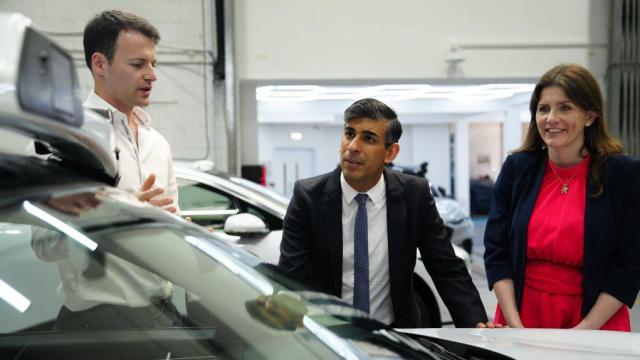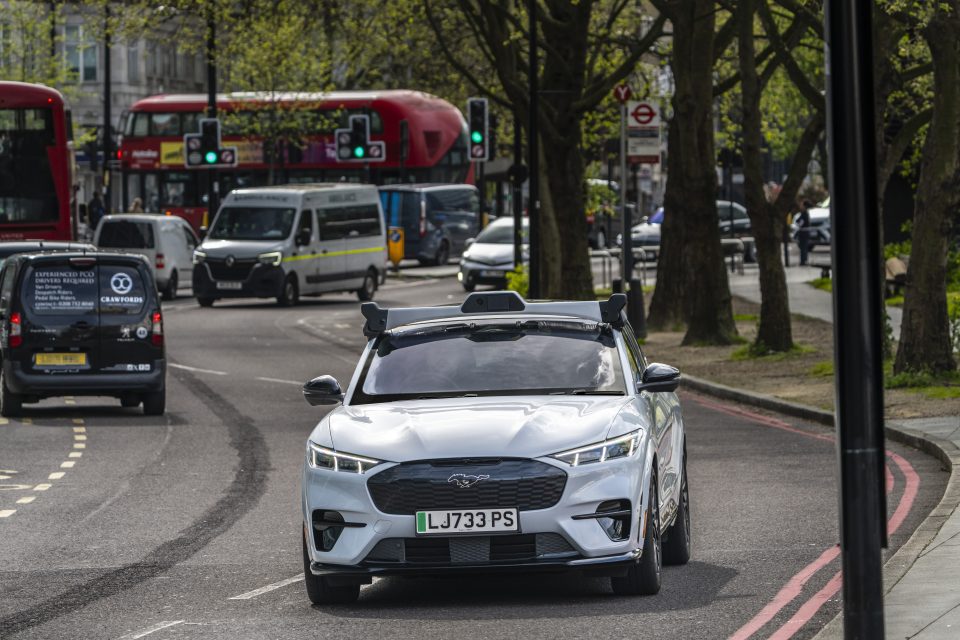
In a groundbreaking development for the autonomous vehicle and artificial intelligence industries, British self-driving car startup Wayve has secured a mammoth $1.05 billion in Series C funding. This funding round was led by SoftBank Group’s Vision Fund, with participation from prominent AI and computing leaders NVIDIA as a new investor, and Microsoft as an existing investor.
This investment represents the largest ever for a European AI company. It provides Wayve with significant resources to accelerate the development and commercialization of its pioneering “Embodied AI” technology for autonomous driving systems.
Embodied AI: A Paradigm Shift for Self-Driving Cars
At the core of Wayve’s approach is the cutting-edge field of embodied artificial intelligence. Unlike traditional autonomous driving stacks that rely heavily on hand-crafted rules, high-definition maps, and the inability to adapt to unexpected situations, Wayve is taking inspiration from human intelligence.
The company’s embodied AI models are trained using advanced neural networks on vast datasets of real-world driving data, mimicking how humans learn sensorimotor skills like driving through observation, experience, and examples rather than explicit programming.
By developing what Wayve calls a “GPT for driving”, these embodied AI systems aim to understand driving scenes, make intelligent decisions, predict potential hazards, and generalize their knowledge to safely navigate any situation on the roads – even scenarios they have not directly encountered before.
This biomimicry approach draws parallels to the current wave of generative AI taking the world by storm but is applied specifically to encoding the nuanced rules and complexities of driving. Wayve believes embodied AI provides the path forward to finally deliver on the transformative yet unfulfilled promise of fully autonomous mobility after over a decade of challenges in the self-driving industry.

From Public Road Testing to Commercial Products
Wayve has been pioneering the embodied AI for the autonomous driving approach for years. Back in 2018, they made history as the first company to ever test a true end-to-end deep learning system for self-driving vehicles on public roads.
Since then, Wayve has conducted real-world trials in partnership with major UK delivery companies like Asda and Ocado Group. Their embodied AI technology is already integrated into advanced driver assistance systems (ADAS) on vehicle platforms from automakers like Jaguar, Ford, and others – providing intelligent driving features that continually improve through AI learning and updates.
But this massive $1.05 billion funding round marks Wayve’s biggest milestone yet in commercializing embodied AI for fully autonomous production vehicles.
The Path to Full Self-Driving Through AI Software Updates
With the new influx of capital, Wayve plans to accelerate the development and launch of its embodied AI products for automakers and fleet operators. Their vision is to provide automakers with a software-defined path to upgrade existing vehicles from lower levels of driving automation such as level 2+ assisted driving up to Level 4 fully driverless automation.
As Wayve’s embodied AI models become more advanced through continued training and learning, their products will enable OEMs to deliver over-the-air software updates to unlock higher levels of self-driving capabilities in those same production vehicles over time.
This software-based approach using embodied AI provides significant advantages over the conventional self-driving path of developing custom autonomous hardware and vehicles from scratch. It enables a more flexible, scalable, and cost-effective rollout of self-driving solutions tailored to each automaker’s needs.
“Our collaboration with SoftBank, NVIDIA, and Microsoft will help advance our mission to redefine driving with AI at the core,” said Wayve co-founder and CEO Alex Kendall. “This investment will enable us to develop and launch our first Embodied AI products for the automotive industry, empowering OEMs to provide consumers with trustworthy and beneficial automated driving experiences.”

Scaling Embodied AI with AI Computing Leaders
To deliver on this vision, Wayve has assembled a formidable coalition of supporters and partners from the worlds of AI, computing, and mobility.
The $1.05 billion funding round was led by SoftBank’s legendary Vision Fund, which has backed ambitious AI companies like Cruise, Mapbox, Nauto, and others. SoftBank managing partner Kentaro Matsui, who has joined Wayve’s board, highlighted how “AI is revolutionizing mobility” and that “advanced intelligence” like Wayve’s embodied AI approach promises to redefine transportation safety and accessibility.
Graphics and AI computing giant NVIDIA is also a new strategic investor and partner with Wayve. The company’s cutting-edge platforms like DRIVE Orin, DRIVE Thor, and Blackwell architecture are designed to efficiently run the transformer, large language model, and generative AI workloads that power embodied AI systems.
“Wayve is pioneering new AI applications for their next-generation AV 2.0 approach, built on NVIDIA’s driving platforms designed for transformer, large language models, and generative AI workloads,” said Rishi Dhall, Vice President of NVIDIA’s automotive business. “Together, we can help enable self-driving vehicles that deliver the intelligence, dependability, and skill of the best human drivers.”
Wayve is also doubling down on its existing partnership with Microsoft. The two companies will collaborate to develop and deploy Wayve’s embodied AI products for autonomous driving using Microsoft’s supercomputing capabilities, enterprise data management, AI model commercialization expertise, and its copilot developer platform.
“Microsoft is pleased to be working with Wayve to develop and deploy their end-to-end AI autonomous driving products for automotive enterprise customers,” said Dominik Wee, Microsoft’s Corporate Vice President of Manufacturing and Mobility. “By utilizing Microsoft’s full stack of AI and cloud technologies, Wayve can deliver and scale innovative embodied AI solutions that enable safer and more accessible autonomous driving experiences.”
In addition to the strategic partners, Wayve has support from prominent VC firms like Eclipse Ventures that have backed the company’s vision from its inception in 2017. “Wayve’s team has dedicated years to gaining a competitive edge in key areas like specialized AI architectures, access to supercomputing, diverse driving data and simulations – uniquely positioning them to unlock the vast potential of Embodied AI for automotive and beyond,” said Eclipse’s Seth Winterroth.
Building the Future of Automated Mobility
With this powerful coalition and significant funding in place, Wayve is well-resourced to execute an ambitious roadmap to evolve their embodied AI technologies and bring them to market at scale.
Top priorities include iterating on their foundation models for autonomy, advancing core embodied AI research and model architectures, and building robust testing environments through reliable simulation, real-world data infrastructure, and AI-based measurement systems.
Wayve will also focus on rapidly expanding its international presence and operations across new markets, allowing it to capture more geographically diverse driving data to enhance its AI systems. Attracting and retaining top AI talent in the emerging embodied AI field will be critical as well.
The implications extend far beyond just self-driving cars. As Wayve’s CEO Kendall stated, the team’s overarching vision is “to develop autonomous technology that becomes a reality in millions of vehicles and earns people’s trust by seamlessly integrating into their everyday lives to unlock extraordinary value.”
If successful, embodied AI systems could become intelligent copilots that deeply understand human driving behavior, enabling personalized autonomous experiences adapted to each person’s driving style and preferences. Advanced language interfaces and intuitive multimodal interactions between humans and AI driving systems become possibilities.
Embodied artificial intelligence may prove to be the missing link that propels autonomous mobility out of the valley of driver assistance into the realization of affordable, reliable, and trustworthy self-driving mobility at scale – a paradigm shift on par with the transition from horse-drawn carriages to automobiles.





